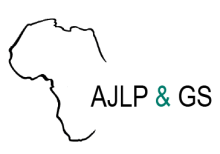Land Library Search
Through our robust search engine, you can search for any item of the over 73,000 highly curated resources in the Land Library.
If you would like to find an overview of what is possible, feel free to peruse the Search Guide.
/ library resources
Showing items 1 through 9 of 18.Theoretically, the world produces enough food to nourish the growing world population. Although precise data remains scarce, according to most recent studies, globally each year possibly as much as 30 per cent of the food produced is being lost or wasted somewhere between farm and fork.
Theoretically, the world produces enough food to nourish the growing world population. Although precise data remains scarce, according to most recent studies, globally each year possibly as much as 30 per cent of the food produced is being lost or wasted somewhere between farm and fork.
Theoretically, the world produces enough food to nourish the growing world population. Although precise data remains scarce, according to most recent studies, globally each year possibly as much as 30 per cent of the food produced is being lost or wasted somewhere between farm and fork.
Theoretically, the world produces enough food to nourish the growing world population. Although precise data remains scarce, according to most recent studies, globally each year possibly as much as 30 per cent of the food produced is being lost or wasted somewhere between farm and fork.
Context and background:
Background and context
Sierra Leone is endowed with abundant of natural resource wealth including Diamond, Gold, and Rutile, Iron Ore, large marine resources and stretches of arable land.
This report is a contribution of the knowledge management component of the LAND-at-scale programme (LAS) which is funded by the Netherlands Ministry of Foreign Affairs, and implemented by the Netherlands Enterprise Agency (Rijksdienst voor Ondernemend Nederland - RVO).
“Free, Prior and Informed Consent (FPIC) is the first line of defense when investors and government officials seek to develop projects that may affect Indigenous communities, lands, territories, and resources.





